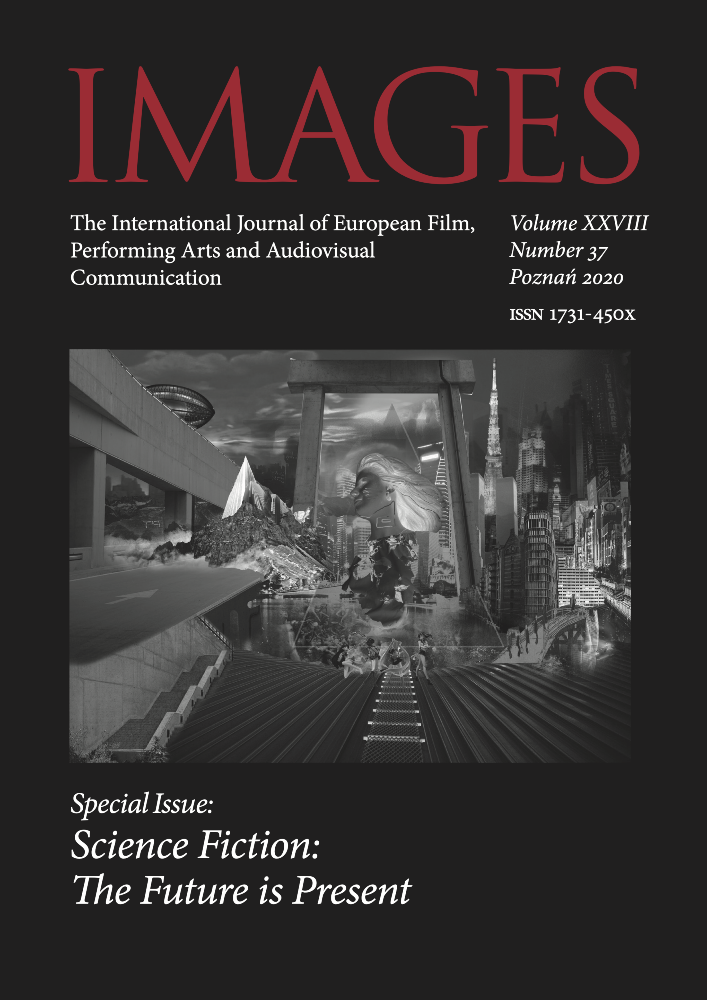Abstract
The article comprises a study of the creative work of the Polish director Radosław Piwowarski, represented by his most characteristic films. The author points out the merger of stylized realism and of the nostalgic (or to be more precise – the realism stylized by means of nostalgia) as constitutive for the film style of this film artist. As a result of film analyses, the narrative structures of Piwowarski’s films appear to be memory structures, as they re-create the reality remembered by the filmmaker, who usually chooses the topos of a trip down memory lane to express his personal and subjective point of view. The film’s story becomes the image of the subjective reality, since it is a product of personal memory, consciousness and imagination. Piwowarski refers to the motif of the Valley of Childhood and Youth, vivid and active in the Polish literature and cinema, as an universum closed up in the past and lost forever, which, however, is accessible through the activity of recalling. The director, by the act of re-creation of a world personally remembered, actualizes the collective memory and therefore creates a community of memory with viewers of his films. The screen image of the past reality therefore gains double reliability – as a personal confession and as a record of the past; in consequence, we achieve the esthetical category of realism of memory.
References
Caughie J., Half way to paradise, „Sight and Sound” 1992, 2/1, s. 11–13
Czarnowski S., Dzieła, oprac. N. Assorodobraj, S. Ossowski. Warszawa 1956
Dabert D., Ostalgia i bezpowrotność w środkowoeuropejskim kinie przełomu, „Porównania” 2012, 11, s. 139–155
Kalinowska I., Radosław Piwowarski, [w:] Autorzy kina polskiego, red. G. Stachówna, B. Zmudziński, t. 3, Kraków 2007
Kowalski P., Odyseje nasze byle jakie. Droga, przestrzeń i podróżowanie w kulturze współczesnej, Wrocław 2002
Lubelski T., Poetyka powieści i filmów Tadeusza Konwickiego, Wrocław 1984
Marczak M., Boże dziwolągi. Rola humoru, groteski i karykatury w kształtowaniu chrześcijańskiej perspektywy filmów, [w:] Świat w zabawie, zabawa światem. Ludyczne koneksje literatury, red. D. Ossowska, A. Rzymska, Olsztyn 2001, s. 135–146
Mickiewicz A., Epilog, [w:] A. Mickiewicz, Pan Tadeusz, Warszawa 1964
Piwowarski R., Sceny rozbierane, Warszawa 2016
Radstone S., Kino/pamięć/historia, [w:] Film i historia. Antologia, red. I. Kurz, Warszawa 2008, s. 337–358
Umińska B., Wczoraj jak dziś, dziś, jak wczoraj. Yesterday, „Kino” 1986, 1, s. 12–15
Voisine-Jechova H., Podróż jako doświadczenie, marzenie oraz poszukiwanie sensu egzystencji w prozie 1760–1820, [w:] Dziedzictwo Odyseusza: podróż, obcość i tożsamość, identyfikacja, przestrzeń, red. M. Cieśla-Korytowska, O. Płaszczewska, Kraków 2007
Wobec przeszłości: pamięć przeszłości jako element kultury współczesnej, red. A. Szpociński., Warszawa 2005
Zygmunt S., Czas wszystko zmienia, „Kino” 1995, 12, s. 4–5
WYWIADY
Co zrobić z wiśniowym sadem – Radosław Piwowarski, rozm. przeprowadził Jacek Cieślak, „Rzeczpospolita” 1998, 222, s. 23
Małe historie, przez które widać większe – Radosław Piwowarski, rozm. przeprowadził Michał Burszta, „Kino” 2009, 12/43, s. 54–55
Yesterday... Wywiad z Radosławem Piwowarskim. Z Radosławem Piwowarskim rozmawia Andrzej Bukowiecki, „Magazyn Filmowy SFP”, 2014, 36, <https://www.sfp.org.pl/baza_wiedzy,311,20236,1,1,Yestarday-Wywiad-z-Radoslawem-Piwowarskim.html>, dostęp: 17.08.2020
License
Copyright (c) 2020 Mariola Marczak

This work is licensed under a Creative Commons Attribution 4.0 International License.

